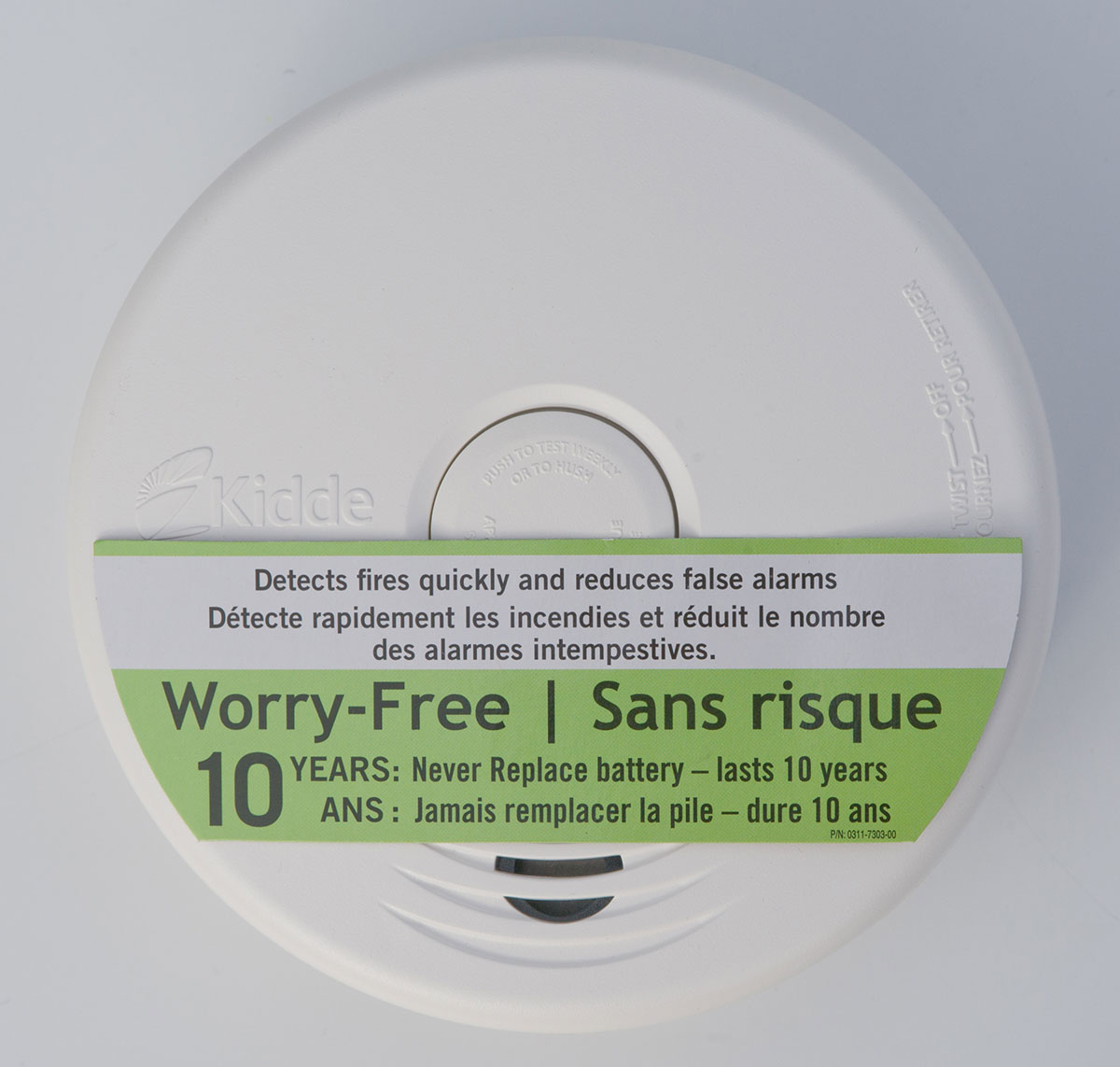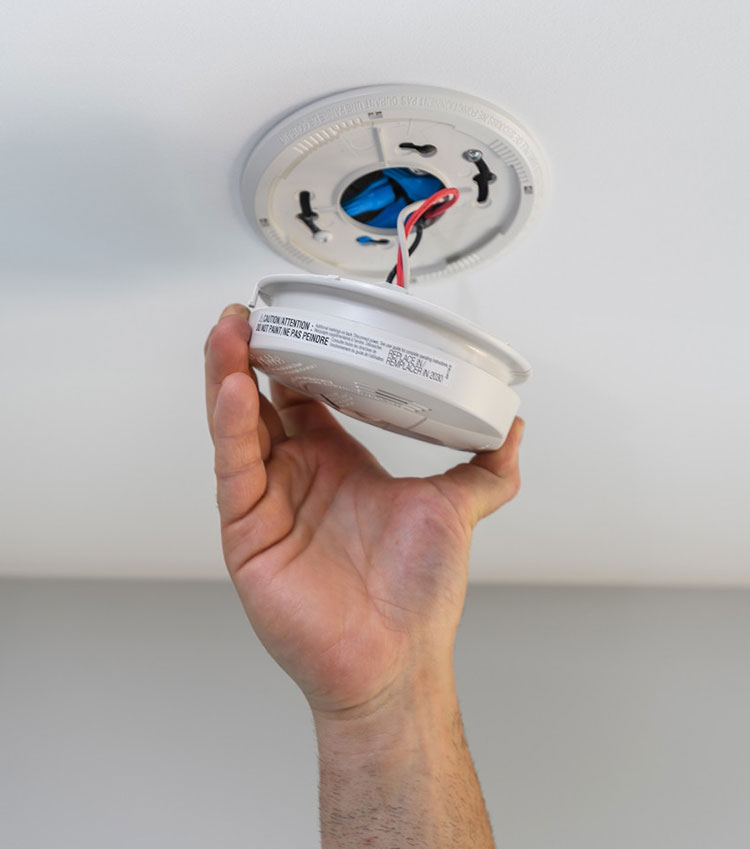Smoke alarms
What you should know
Test smoke alarms once a month by pressing the test button and replacing the batteries as required.
Certain smoke alarms have a ten-year battery that does not need to be replaced for the life of the alarm, while others have replaceable batteries; consult your manual for the proper maintenance and replacement.
Replace smoke alarms after ten years. If you discover a smoke alarm is defective or broken after testing, replace it immediately.
Install at least one smoke alarm on every level of your home, including the basement, and ensure there is a smoke alarm inside every bedroom or outside every sleeping area.
Sleep with bedroom doors closed. Test smoke alarms to ensure you and your family will be able to hear and wake up at the sound of the alarm and if not, install smoke alarms inside bedrooms to ensure residents will hear when sleeping.
There are several types of smoke alarms and detectors. Alarms using ionization technology are best suited for detecting fast-flaming fires. Alarms using photoelectric technology are best suited for detecting slow, smouldering fires.
For the best protection, install both ionization and photoelectric smoke alarms in your home or consider installing dual-sensor smoke alarms.
When purchasing a smoke alarm, look for a product that has been manufactured and tested to an acceptable standard, as indicated by a marking for the Underwriters Laboratories of Canada (ULC).

Note: Certain smoke alarms have a 10-year battery that does not need replacing for the life of the alarm, while others have replaceable batteries; consult your manual for the proper maintenance and replacement
How to tell if your smoke alarm is expired
Smoke alarms expire after ten years.
To find out how old your smoke alarm is follow these steps below:
- Remove the smoke alarm from the wall or ceiling.
- Look at the back of the alarm for the date of manufacture.
- If it was made less than ten years ago, put the alarm back on the ceiling or wall.
- If it was made ten or more years ago or you cannot find the manufacture date, replace the alarm with a new one.

What kind of smoke alarms are available?
Smoke alarms may be powered by battery (9 volt), hard-wired to your home’s electrical system or hard-wired to your home with a battery backup. Regardless of how a smoke alarm is powered, it should be replaced after ten years.
Basic care instructions for a smoke alarm include:
- Regular vacuuming with a soft bristle attachment can help keep a smoke alarm working properly. Follow manufacturer's instructions for cleaning.
- Do not paint or decorate smoke alarms.
Installation information:
Install all alarms as per the manufacturer's recommendations, keeping in mind the required clearances.
Installing smoke alarms on the ceiling is recommended as smoke, heat and combustion products rise to the ceiling and spread horizontally.
Smoke alarms may be installed inside bedrooms and can be interconnected with alarms installed in hallways and common areas.
When your smoke alarm is activated without the presence of smoke or fire, it is called a ‘nuisance alarm’. This may happen because the smoke alarm needs to be cleaned or is too close to kitchen appliances that emit smoke or steam and set the smoke alarm off. Consider relocating the smoke alarm further away from kitchens and bathrooms or install a smoke alarm with a ‘hush’ feature, which allows temporary silencing of the alarm.
Hard-wired smoke alarms can be interconnected so that every smoke alarm sounds when smoke is detected by just one alarm. This is an advantage because residents are given more time to escape if they are in one part of the home and a fire breaks out in another part. Alarms that are hard-wired should have battery back-ups in case of a power outage.
Assistive alerting devices for Deaf and hard of hearing
The Calgary Fire Department provides free assistive alerting devices to eligible Deaf and hard-of-hearing Calgarians. These devices are designed to provide early warning safety alerts for smoke and carbon monoxide emergencies. To learn more, visit Assistive alerting devices for Deaf and hard of hearing.
Other resources
-
Carbon monoxide (CO) is a poisonous gas that has no colour, smell, or taste. Long-term exposure can cause sickness or lead to death. Having a working CO alarm in your home will warn you in case of exposure.
-
When used properly, and portable fire extinguisher can be effective only on certain small fires. It’s important to know when and how to use a portable fire extinguisher.
-
Residential fire sprinklers can be effective in keeping a growing fire under control and even put it out.
-
Escape routes which have you going out a second or third story window should have a home escape ladder.



